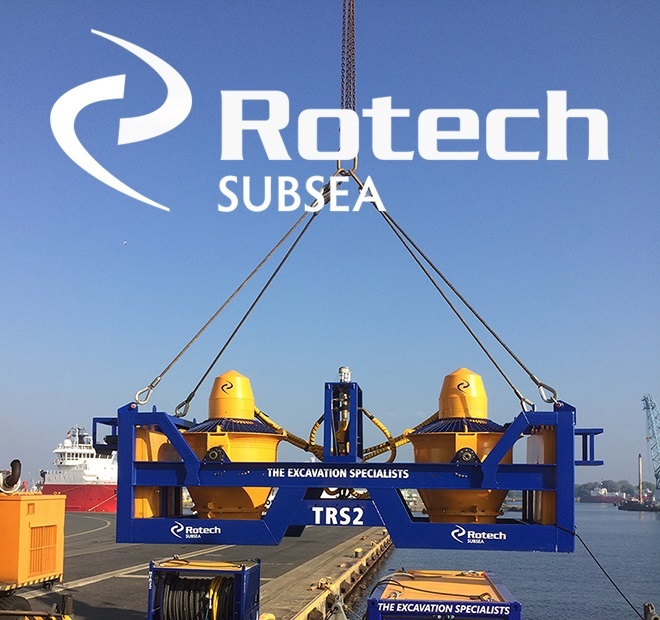
The Aberdeen-based Rotech group of businesses is carving out a niche for its subsea excavation business in the renewable-energy market.
Rotech’s management team has moved quickly to capture a large slice of the UK renewables market for its innovative technology.
Stephen Cochrane and Donald Stewart, directors of subsea and engineering respectively at the firm, said the company had made substantial progress since a management buyout (MBO) just under a year ago.
“What we were talking about then, well now we’re actually doing it,” Mr Cochrane said, adding: “We’ve carried out 11 (renewables) projects to date.”
The firm is also picking up more work elsewhere in Europe, while its traditional oil and gas business is still in high demand around the world.”
Rotech’s move into offshore wind markets is a direct result of the collapse in the oil price since 2014, since when it has refocused its research and development work from downhole drilling tools to concentrate on the design and development of a new range of patented subsea excavation technology.
Its RS range of subsea excavation equipment has been developed specifically for non-contact trenching for installation and inspection, repair and maintenance of power and umbilical cables for offshore windfarms.
Mr Stewart said the renewables market was quickly becoming convinced of its capabilities.
According to Mr Cochrane, the company’s technology is three times more powerful than any other equipment currently in the market.”
He said Rotech currently had two “spreads of equipment” working on renewables projects in the North Sea, with a third about to go back into the water.
Last year’s MBO marked an exit for Mr Stewart’s brother, Ken, who created Rotech from a buyout from Dutch company Volker Stevin in 1986.
Mr Cochrane said the company’s success at securing new work was helped by a good reputation and a track record of about 400 past projects.
“We don’t stand still,” he said, adding: “We are constantly pushing the boundaries.”
The company is also receiving a growing number of inquiries about decommissioning work, he said.